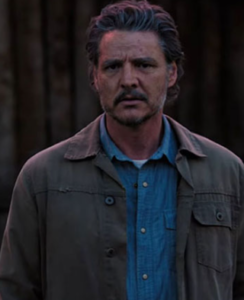More behind the stage than meets the eye: NSD director on theatre, its problems and prospects
New Delhi, Jan 19 (PTI) Theatre has survived it all, the advent of cinema, television and now OTT, says National School of Drama director Chittaranjan Tripathy, doffing his hat to the “addiction of a live medium” but also acknowledging that there is neglect and a crisis of content.
Tripathy, who has been director of the prestigious drama school for a little over a year, said there should be a cultural renaissance in the land that gave the world the “Natya Shastra”, the treatise on performing arts believed to have been written more than 3,000 years ago.
The virtues of theatre as described by the western world have all been mentioned in “Natya Shastra” that faces neglect in the country of its origin, Tripathy told PTI in an interview during a visit to the news agency’s headquarters.
“If you read the 6,000 shlokas in ‘Natya Shastra’, you’d feel you have read this somewhere, but not here, in some other place. Our home is the place that already has this, that’s why this cultural awakening is important,” the 53-year-old said.
The “Sacred Games” actor also advocated the merits of ‘sanatan’, used along with dharma to denote the ‘eternal’ and seen as synonymous with Hinduism.
“Sociology explains culture in the simplest form as a way of life. It will keep changing with time so there will be a mainstream, or contemporary culture, but there is also the root. When we talk about that then you have to look at ‘sanatan’ and there should not be any hesitation in that…,” Tripathy added.
In his view, it’s not possible to separate culture from politics. The problem is with the perception of it.
“If we abandon our culture, then we are orphans. There should not be any politics here. But unfortunately, people play politics here. When I say Indian, there shouldn’t be any politics there,” Tripathy said.
He is known for his work in theatre productions like “Samudra Manthan”, “Gannu Bhai”, and “Taj Mahal Ka Tender”, and his roles in Hindi films such as “Talvar”, “Zubaan” and “Mukkabaaz”. The artiste has also worked in web series, including “Rasbhari”, “Raktanchal”, “Farzi” and “MOM”.
Just as no single person is credited for the many scriptures, the director of a play is seldom talked about. People may remember a joker or a narrator, Tripathy added. He blamed British rule for a break in Indian traditions, especially the existence of “natya mandapas” in temples.
“Similarly, our ancestors, they have already done a lot and the chain broke because the British ruled on us and they wanted us to learn their language. They closed Sanskrit schools and vernacular schools. They became the mainstream and we became those extras in the extracurricular.”
Tripathy also dwelt on the crisis in content. Nobody, he said, is writing new plays for the lack of a financial prospect.
“Even if you write one, nobody is going to publish it let alone stage it. Those who have talent and can write 10 pages do it for daily soaps where they get Rs 20,000 per day. Theatre can’t pay like that. Talent has gone over to OTT,” he said.
To address the dearth of new plays, the drama school will soon be starting an MA course in content writing that will require its students to write a short film, an ad film, a full length film and a full length play in a year.
“At the end of it, we feel at least two or three good plays will come of it,” Tripathy said. Also, to make playwriting financially appealing, NSD plans to approach theatre initiatives by corporates like Aditya Birla Group (Aadyam) and Mahindra Group (Meta). “In this year’s Bharat Rang Mahotsav, we will award three original plays in Natak Bazaar that we will then propose to the likes of Aadyam and Meta to invest in,” he added.
The drama school, set up in 1959, offers training in different aspects of theatre production, including acting, techniques, direction, and design.
But does it offer a viable profession to its graduates? Tripathy minces no words in giving a reality check in response.
“If I want to buy a bungalow in front of Amitabh Bachchan’s bungalow in Mumbai, it may be my wish. It’s ok if it remains a wish and doesn’t become a mania, if it becomes a mania then it is definitely not a viable profession.”
But that is only one half of the picture.
People may remember success such as Naseeruddin Shah, Pankaj Tripathi or Rajpal Yadav but there are many more who have made successful careers in the industry, only behind the stage, he said.
Contrary to popular belief, a very small number of NSD graduates go to cinema and most of lead successful careers in different arms of theatre besides acting. “Society only considers those it sees on screen,” Tripathy said.
According to an internal survey last July, nearly 96 per cent of NSD graduates are “engaged and earning”, he said, adding that NSD graduates are doing a lot of work in their respective regions.
“When the cinema came, people said the theatre would perish. Then TV came and they said, now the cinema would perish.Yet the theatre survived it all. Everything happens right in front of you. This is not a recorded medium, it’s a live medium and the addiction of a live medium is different.”
“Whenever we are doing a play in NSD you’d be surprised that it’s mostly youth who come to watch, the people who say they (youth) are only into social media and reels and yet they come. It means it’s really difficult to defeat that curiosity, that mystery,” Tripathy said.
In a bid to make theatre more profitable for those involved, NSD last year increased the ticket prices for its plays, a decision that led to a lot of criticism.
“Make society pay for theatre, society is not helpless it has just gotten used to the idea ‘I’ll go only if I get a pass’. Stop doing that. Even if only two people come to watch, they are your actual audience,” Tripathy argued.
The training institute has also been trying to make the theatre a more approachable artform with different outreach programmes and its marquee event, “Bharat Rang Mahotsav”.
As part of “Rang Shashthi”, the Repertory Company’s programme celebrating its 60 years, NSD alumni visits different Indian cities to perform its plays. The purpose is to make the drama school “relevant in the contemporary world in terms of methodology and training”.
The drama school will be organising Bharat Rang Mahotsav from January 28 at more than 10 Indian and two foreign capitals – Colombo and Kathmandu.
The annual festival, which features more than 200 verbal and non-verbal plays in different languages, will also feature 10 international plays from countries like Germany, Norway and Taiwan.






